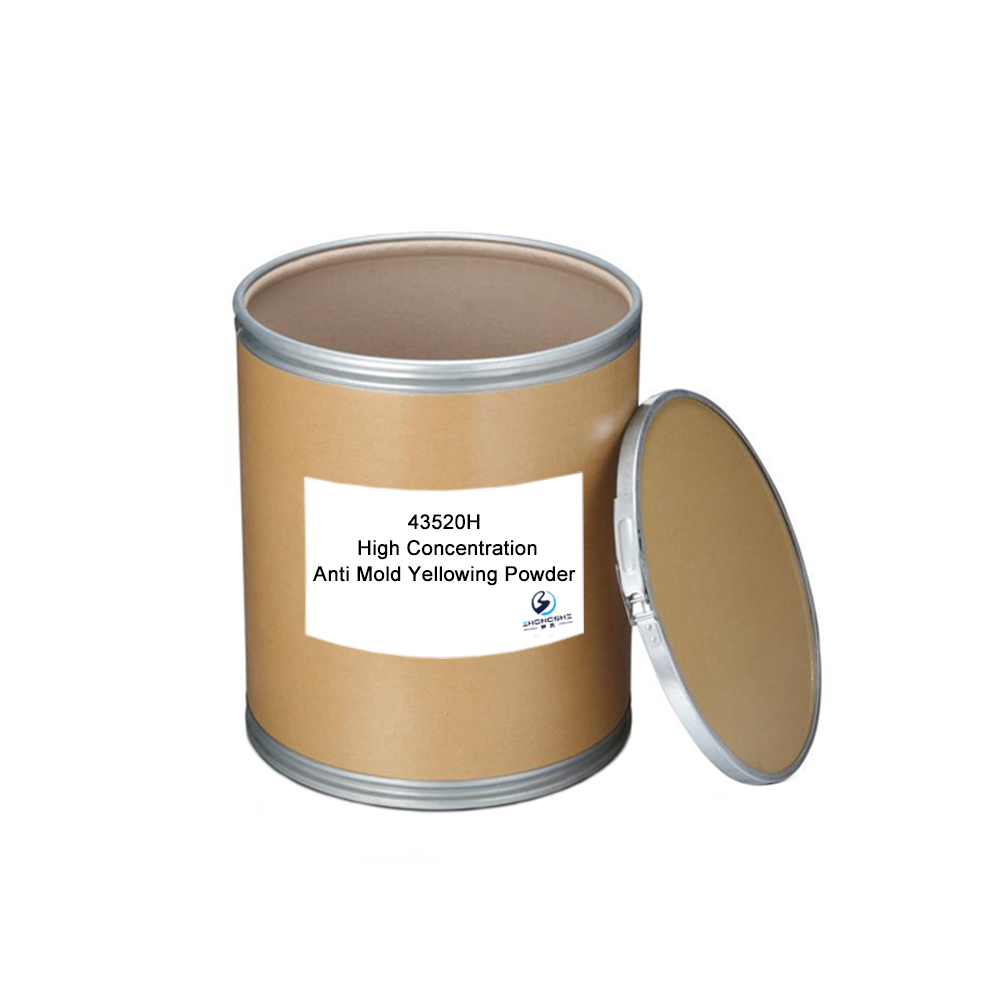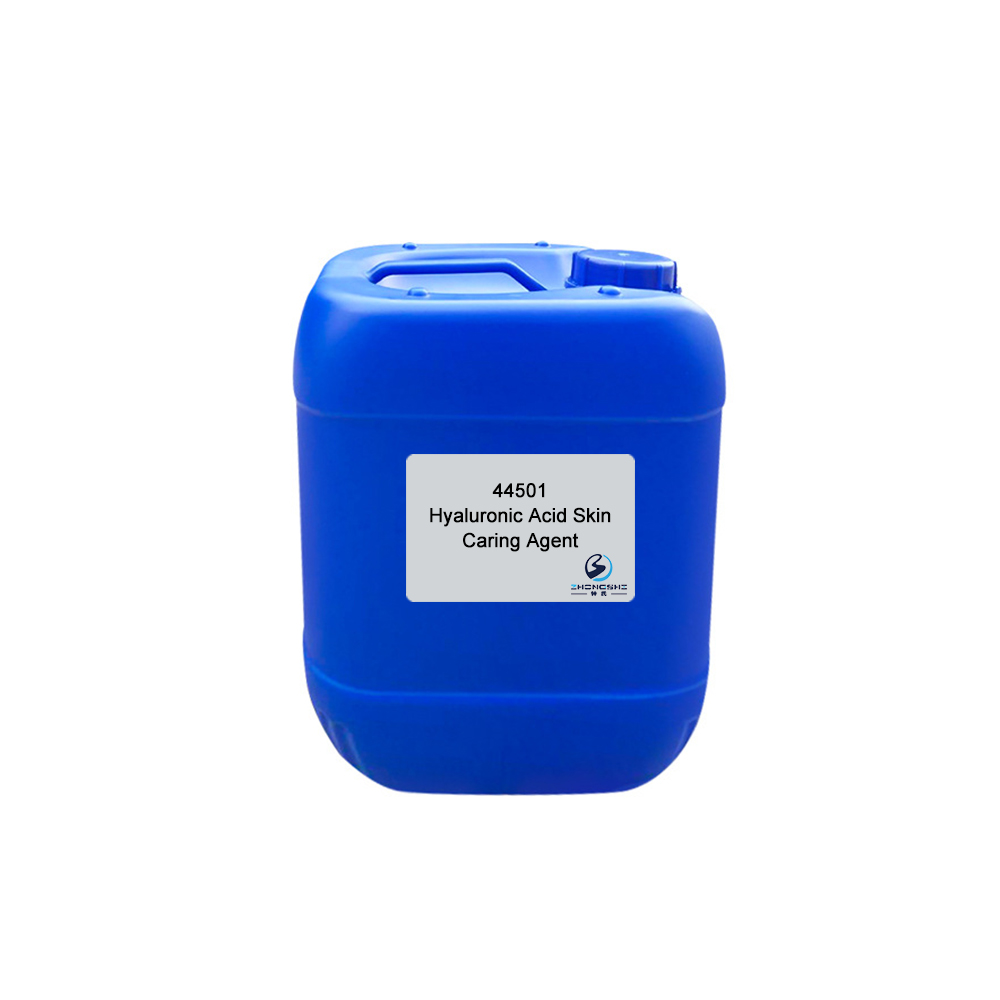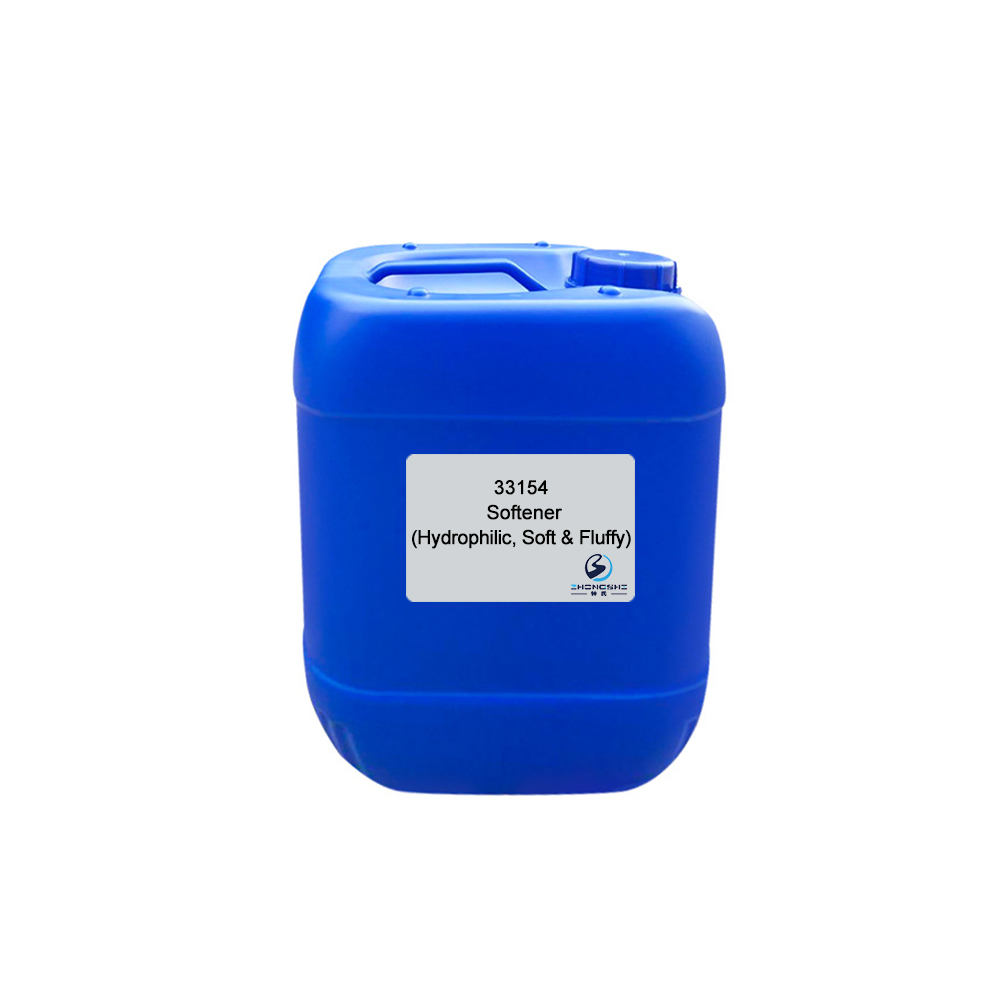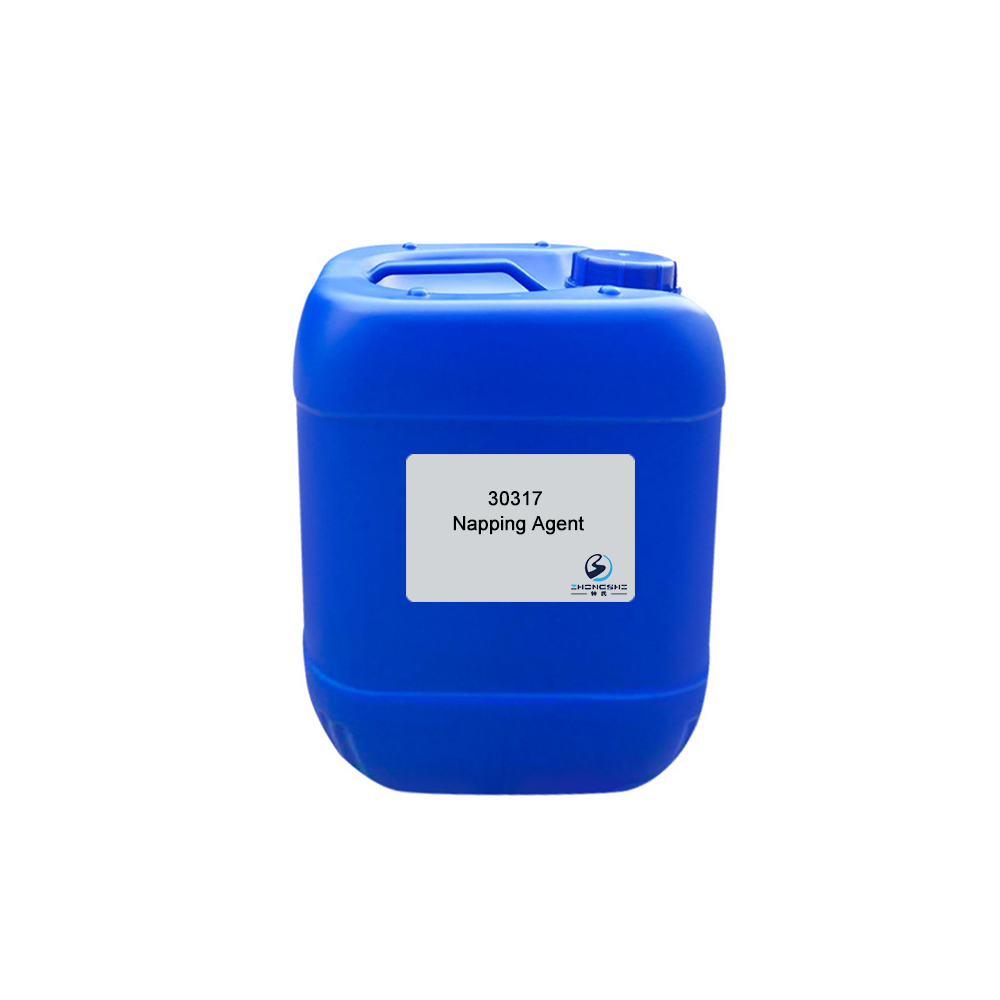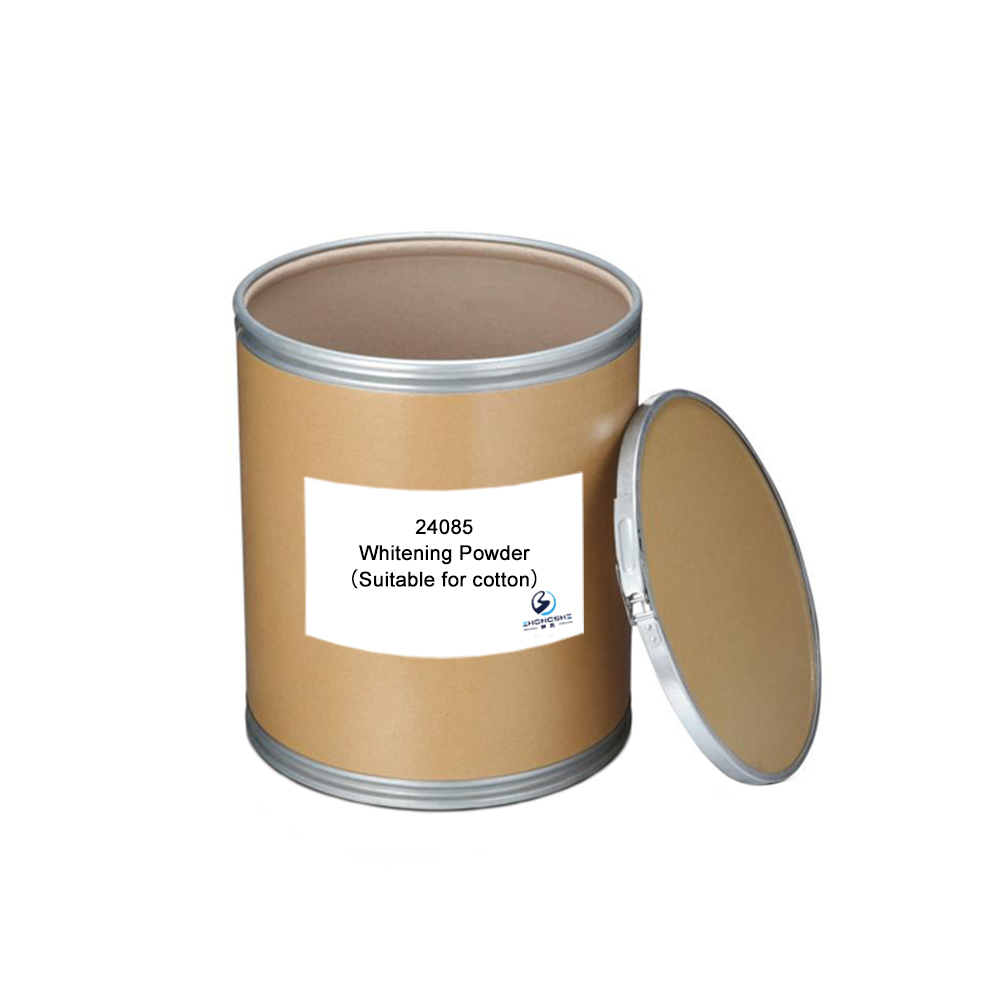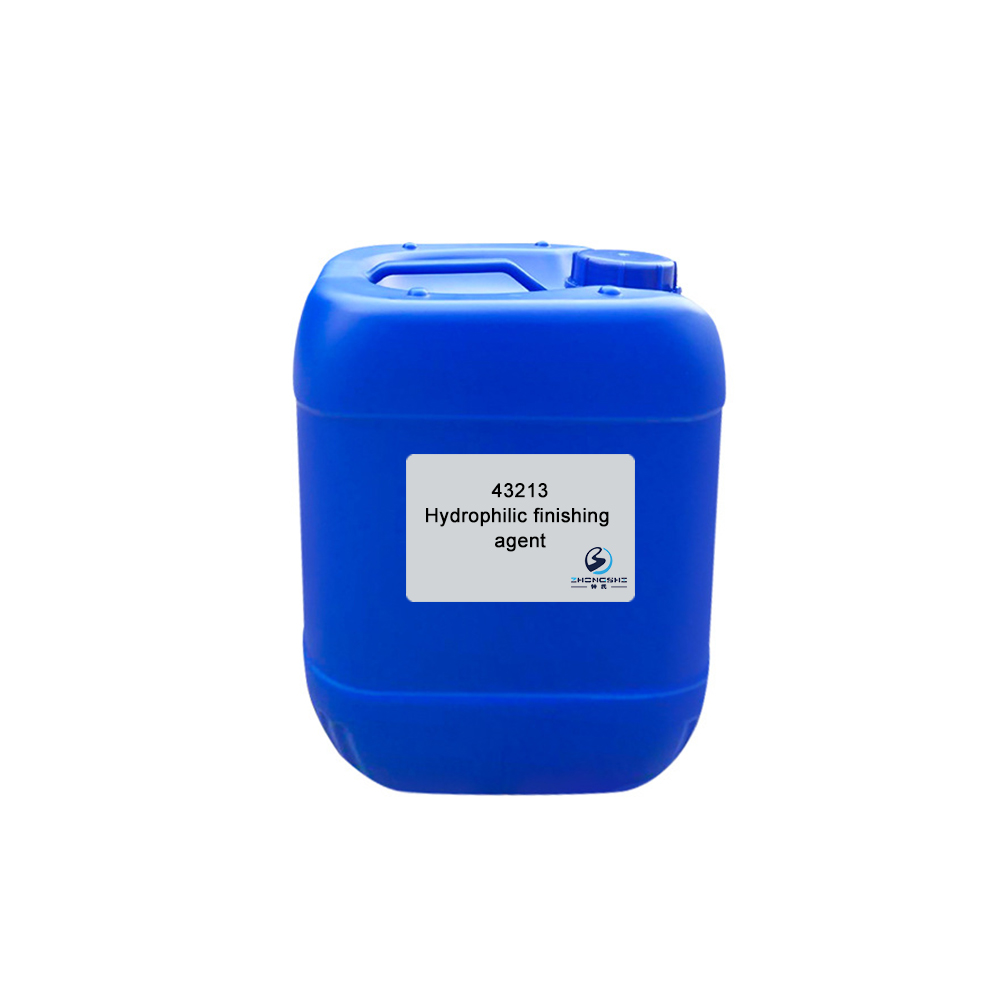Good quality Dyeing Bath Silicone Oil - 76034 Silicone Softener (Soft, Smooth & Especially suitable for mercerized fabrics) – Innovative
Good quality Dyeing Bath Silicone Oil - 76034 Silicone Softener (Soft, Smooth & Especially suitable for mercerized fabrics) – Innovative Detail:
Features & Benefits
- Good stability.
- Imparts fabrics soft, smooth and exquisite hand feeling.
- Low yellowing. Suitable for light color and bleached fabrics.
- Has a certain deepening effect on medium and dark color cotton fabrics.
- Not influences hydrophilicity of fabrics of cotton and cotton blends.
Typical Properties
| Appearance: | Translucent fluid |
| Ionicity: | Weak cationic |
| pH value: | 6.0±0.5 (1% aqueous solution) |
| Solubility: | Soluble in water |
| Application: | Cellulose fiber and cellulose fiber blends, as cotton, viscose fiber and CVC, etc. |
Package
120kg plastic barrel, IBC tank & customized package available for selection
TIPS:
Chemical finishing processes
Chemical finishing can be defined as the use of chemicals to achieve a desired fabric property. Chemical finishing, also referred to as ‘wet’ finishing, includes processes that change the chemical composition of the fabrics that they are applied to. In other words, an elemental analysis of a fabric treated with a chemical finish will be different from the same analysis done prior to the finishing.
Typically chemical finishing takes place after coloration (dyeing or printing) but before fabrics are made into garments or other textile articles. However, many chemical finishes can also be successfully applied to yarns or garments.
Chemical finishes can be durable, i.e. undergo repeated launderings or dry cleanings without losing effectiveness, or non-durable, i.e. intended when only temporary properties are needed or when the finished textile typically is not washed or dry cleaned, for example some technical textiles. In nearly all cases, the chemical finish is a solution or emulsion of the active chemical in water. Use of organic solvents to apply chemical finishes is restricted to special applications owing to the expense and the real or possible toxicity and flammability of the solvents employed.
The actual method of finish application depends on the particular chemicals and fabrics involved and the machinery available. Chemicals that have strong affinities for fiber surfaces can be applied in batch processes by exhaustion in dyeing machines, usually after the dyeing process has been completed. Examples of these exhaust applied finishes include softeners, ultraviolet protection agents and some soil-release finishes. Chemicals that do not have an affinity for fibers are applied by a variety of continuous processes that involve either immersing the textile in a solution of the finishing chemical or applying the finishing solution to the fabric by some mechanical means.
After application of the chemical finish, the fabric must be dried and if necessary, the finish must be fixed to the fiber surface, usually by additional heating in a ‘curing’ step. A schematic diagram of a pad–dry–cure process is shown as below.
Product detail pictures:
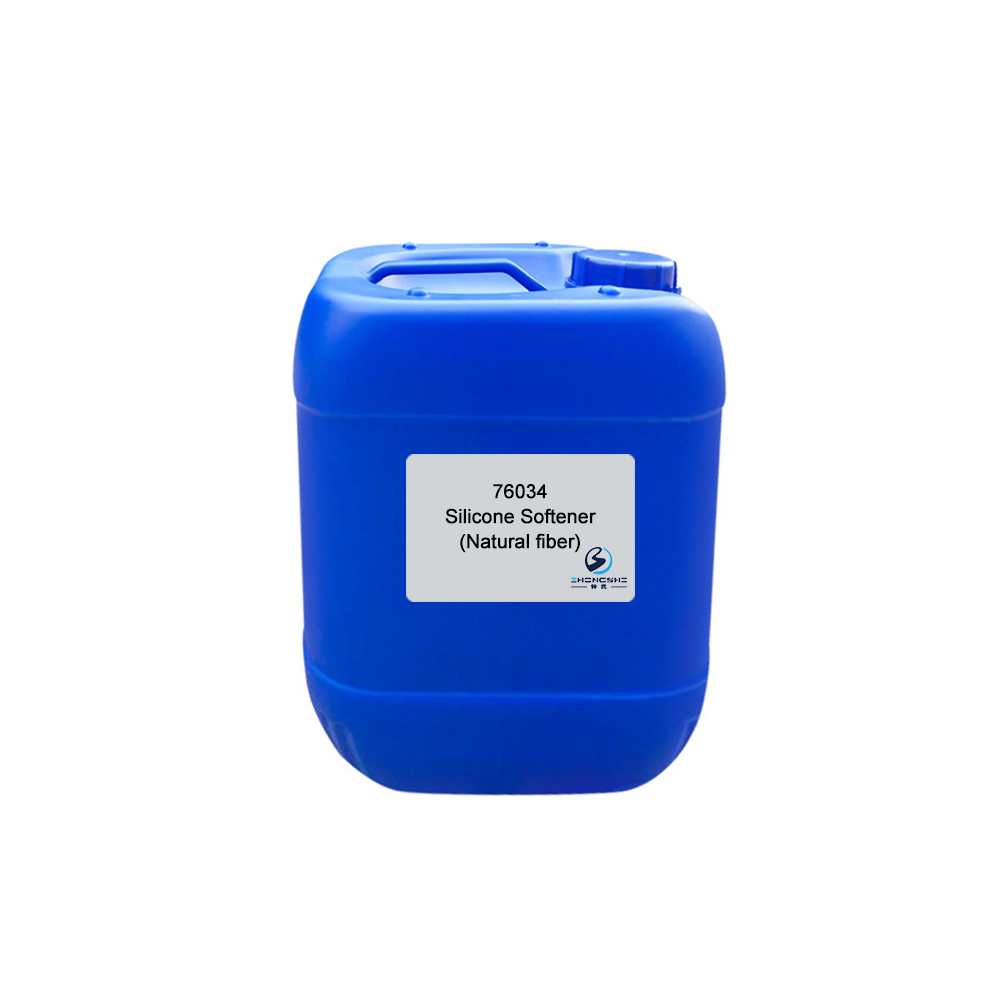
Related Product Guide:
Soaping agent is used to remove the unfixed dyes and hydrolytic dyes on fabrics and prevent color spots on fabrics, which improves the product quality. Good quality Dyeing Bath Silicone Oil - 76034 Silicone Softener (Soft, Smooth & Especially suitable for mercerized fabrics) – Innovative , The product will supply to all over the world, such as: Finland, Bangladesh, Sudan, Silicone Softener 97078 is weak cationic and transparent emulsion. It is suitable for fabrics of polyester fiber, nylon, milk fiber and wool, etc. Silicone Softener 97078 can impart fabrics soft, smooth, dry, silky and exquisite hand feeling and excellent hydrophilicity. Also it is suitable for nylon yarns and seamless underwear, etc. It has high stability and high shear resistance. It is cost-effective. A very small dosage can achieve excellent effects. For padding process, the reference dosage of Silicone Softener 97078 is 10~30g/L.
In China, we have purchased many times, this time is the most successful and most satisfactory, a sincere and realiable Chinese manufacturer!



